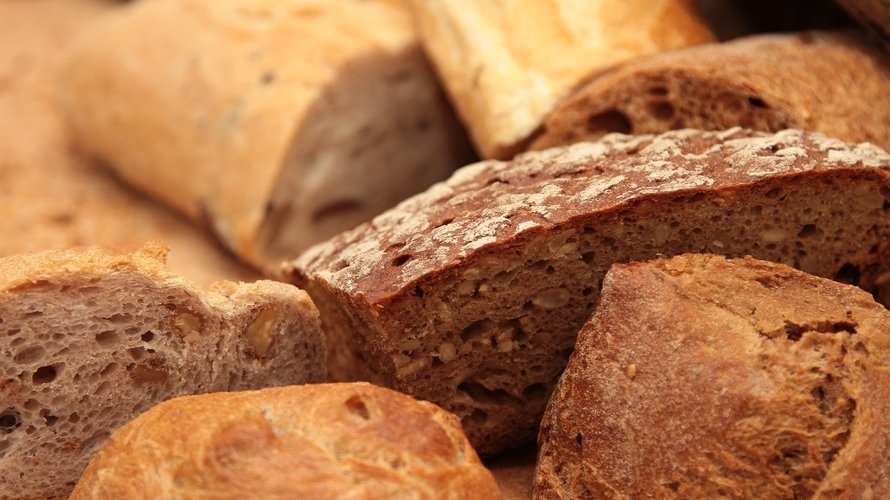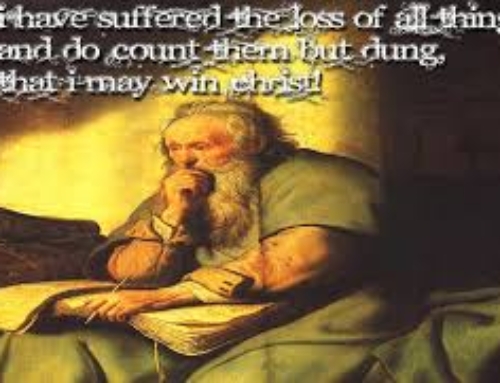Andy Stanley just passed Bill Hybels for third largest church in the nation. Ed Young, whose church is the second largest in America in average weekly attendance, is a mere 1102 people ahead of Stanley, sure to be gobbled up in a matter of months. Joel Osteen, with a staggering 43,500 attenders per week, maintains a healthy 20,000 person lead over second best. Stanley is no threat to him…yet.
In my way of thinking, there’s nothing wrong with church growth. Would that every American attended church on Sunday mornings. But even if sports arenas across the country were converted to churches and packed to capacity, the question must be asked, “What then shall they eat?”
Sports fans fill stadiums to watch a game unfold. Concert goers feast their eyes upon their favorite performers. Political rallies culminate in a main course—a speech from the candidate who promises to improve their lives. But why do churchgoers go to church?
Consumerism in the church is a big problem already, fed as we are by comfortable buildings, accommodating programs, cutting-edge music and lights, and sermons designed to be relevant to our lives (and not to overstretch our attention spans). We live in the wealthiest nation in the history of the world, which is not a problem in itself, but leaves us susceptible to certain temptations. If we are not careful, we just might end up going to church for the wrong reason. We might consume the wrong thing. We might leave feeling satisfied (good enough anyway), but having consumed nothing that nourishes the soul.
If we go to church to consume anything, it must be the Word of God. Sunday mornings are first-of-all about offering praise to God, not receiving anything. But His glory is our joy, and—in a derivative sense—it is right and good for us to receive things from God on Sunday mornings. When Jesus recommissioned Peter after his 3-fold failure, he repeated the same charge 3 times. Peter was to care for the sheep—the people he was given to pastor. In two of the three commands (John 21:15-17), Jesus specifically said “Feed my sheep” (the other time He said “Tend my sheep”). What then are sheep supposed to eat?
When Peter—commissioned as he was to pastor Christ’s sheep—wrote a letter to the scattered sheep of the dispersion, he surely had in mind to feed them. That is why he tells them to “long for the pure spiritual milk, that by it you may grow up into salvation, if indeed you have tasted that the Lord is good” (1 Peter 2:2-3). Peter has in mind to feed them, and their food is to be the Word of God. He closes his last inspired letter by exhorting the sheep to pay heed to scriptures that are being given to the church through another apostle—Paul (2 Peter 3:15). Clearly, the Church’s food is the Scripture (Acts 2:42).
Since the apostles’ teaching was the food and foundation (Ephesians 2:20) of the early Church, we need to return now to Andy Stanley, since his influence is widespread and growing. In a recent sermon, Stanley taught that “Christianity does not rise and fall on the integrity or verifiability of the entire Bible.” It is clear to me that Andy Stanley was not, in this sermon, asserting that the Bible is untrustworthy. Rather, in order to be sensitive to seekers, in an effort to reduce Christian dogma down to the mere essentials, Stanley sets out to prove the veracity of the Christian faith, and to do so without reference to the Bible. For him, the historicity of the events that undergird the Christian message are self-evident enough to establish the Faith (Jude 3) without needing the book that, according to him, came later.
Without questioning Stanley’s motives, I question the foundation of his thinking. I question his epistemology. The problem is: How do we know the truthfulness of the events apart from the Bible? Even if we could prove the resurrection from historical sources, which we can’t, we still couldn’t prove the meaning of the events apart from the Bible. Without the Levitical sacrifices, without the Passover Lamb, without passages like Isaiah 53, how could we know that the death of Jesus was a penalty substitute? Yet substitutionary atonement is part and parcel of the Gospel. So, it is the case—contra Stanley—that Christianity stands or falls on the integrity of the Bible. Scripture is our only way of knowing the meaning of Jesus’ death, burial and resurrection.
Here’s the problem that may have given rise to Stanley’s recent unorthodox teaching: There’s a wrong way to grow. Let’s recognize: Things grow in America. It’s not all that hard to grow a church in America. If lousy sports teams, bad singers, and dishonest politicians can still fill stadiums, then why can’t churches grow by offering the wrong food for consumption?
It’s not my job to say which churches are growing the right way and which aren’t. I’m not even saying that Andy Stanley grew his church the wrong way. I don’t know as much, since I haven’t followed his teaching over the years. But I am saying that many churches are growing the wrong way, and the prescribed diet that Andy Stanley is offering recently is poison in the well. Jesus said “Feed my sheep”, and that means careful exposition of the Word of God, which is the food and foundation of the Church. Stanley says we could make it without the Bible, “but
Andy Stanley’s recent assertions downplaying the importance of Scripture must be rejected. Moreover, as we navigate life in a consumeristic culture, we need to be careful not to allow the world around us to conform our churches to its consumer-driven methodologies. Let’s focus on feeding the sheep the pure unadulterated Word of God through expository preaching, and let growth happen organically. Then we will be able to say that “God gave the growth” (1 Corinthians 3:7). Jesus repeated himself, but perhaps we still need to hear it again: “Feed My sheep.”
* Here is a link to Andy Stanley’s recent teaching: http://northpoint.org/messages/who-needs-god/the-bible-told-me-so/






